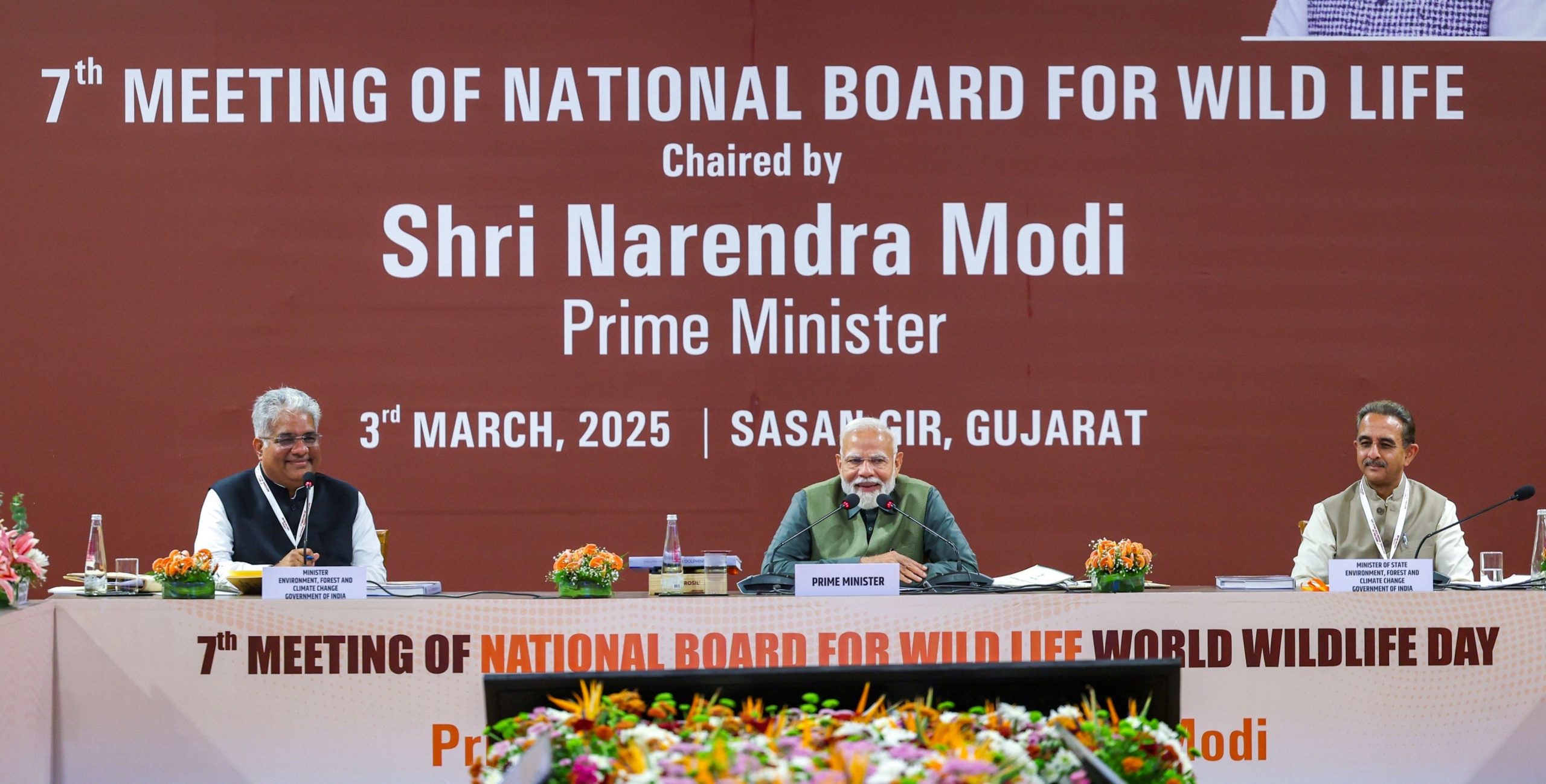Gir, Gujarat: Prime Minister Narendra Modi chaired the 7th meeting of the National Board for Wildlife at Gir National Park, where he reviewed India’s wildlife conservation efforts and launched several major initiatives. The meeting highlighted India’s success in expanding protected areas and key species-specific programs, including Project Tiger, Project Elephant, and Project Snow Leopard.
During the meeting, the Prime Minister released the first-ever riverine dolphin estimation report, which recorded 6,327 dolphins across 28 rivers in eight states. Uttar Pradesh topped the count, followed by Bihar, West Bengal, and Assam. He emphasized the need to involve local communities in dolphin conservation and suggested exposure visits for schoolchildren to dolphin habitats.
Taking forward India’s commitment to wildlife health, PM Modi laid the foundation stone for the National Referral Centre for Wildlife at Junagadh, which will act as a hub for disease management and wildlife conservation strategies. He also initiated the 16th cycle of Asiatic Lion population estimation, scheduled for 2025, and announced conservation efforts for lions in Barda Wildlife Sanctuary through prey augmentation and habitat improvement.
Addressing human-wildlife conflict, the Prime Minister announced the establishment of a Centre of Excellence at the Wildlife Institute of India (WII)–SACON, Coimbatore. The center will equip Rapid Response Teams with advanced tracking technologies, develop surveillance systems, and train field personnel and local communities in conflict mitigation strategies. He further directed the use of AI, remote sensing, and geospatial mapping to combat issues like forest fires and human-animal conflicts, with institutions like BISAG-N collaborating with the Forest Survey of India on forest fire management.
Expanding the Cheetah reintroduction program, the Prime Minister announced new sites, including Gandhisagar Sanctuary in Madhya Pradesh and Banni Grasslands in Gujarat. He also unveiled a scheme for tiger conservation outside tiger reserves, aimed at mitigating human-tiger conflicts and ensuring coexistence.
Recognizing the declining gharial population, PM Modi launched a dedicated Gharial Conservation Project to protect this endangered species. He also introduced the National Great Indian Bustard Conservation Action Plan, emphasizing the need to scale up protection efforts for the critically endangered bird.
The Prime Minister instructed the Board and the Environment Ministry to document traditional knowledge on wildlife conservation, leveraging Artificial Intelligence to preserve indigenous conservation techniques. He further suggested enhanced cooperation with the United Nations Convention on the Conservation of Migratory Species of Wild Animals (CMS) and called for research on medicinal plants in forests to promote plant-based animal health solutions globally.
PM Modi flagged off motorcycles for frontline forest staff to improve mobility and efficiency in conservation work. He also interacted with eco-guides, trackers, and forest officials at Gir National Park, commending their contributions to India’s wildlife conservation success.





